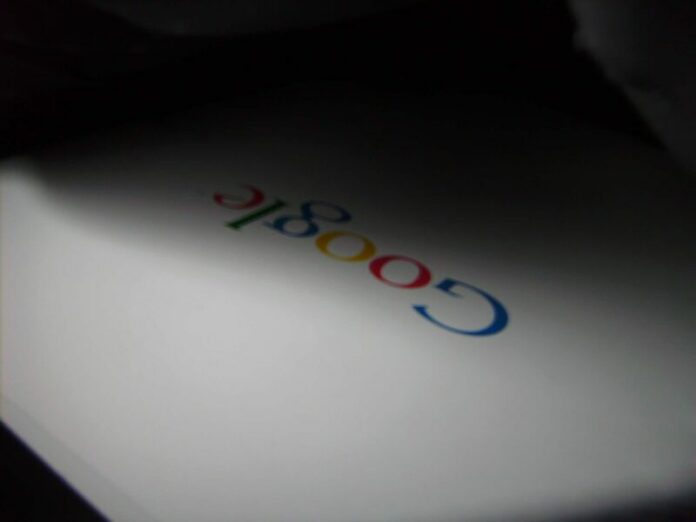The process that the US Department of Justice has initiated against Google continues. As US officials stated in their opening speech, the case concerns the “future of the internet”. The case was inspired, among other things, by competitors who believe the allegedly illegal steps taken by the leader among search engines have allowed it to solidify its market position. The first days of the trial reveal details of cooperation between individual tech giants, which were not always partner-like. At the heart of the case are user data, which allow tools to be improved and a monopoly to be built, and which we “give away” in exchange for free use of them. The company could even be facing a split, which could mean an internet revolution.
This is the first such large anti-monopoly case in 20 years initiated by US officials against BigTech. Notably, the case was filed in 2020, during the administration of then-President Donald Trump. Current officials, after examining the documents, also believe there is no basis for shelving the case. In a nutshell, the Department of Justice accuses Google of using even a 90% stake in its search engine to illegally restrict competition — not only in the search engine market, but also in advertising which is positioned alongside search results. This resulted in Google’s internet search facilitating software accounting for over half of the company’s $283 billion in revenue and $76 billion in profit for its parent company, Alphabet in 2022. The company’s market capitalization exceeds $1.7 trillion.
Google, however, does not want to discuss trade details, and after just a few hours of hearings, we can be sure not all details will be immediately disclosed. Prosecutors want to investigate, for example, the price lists for ads in the search engine, but the company remains secretive and agrees to discuss it only in a closed meeting. The Department of Justice disagrees, maintaining that this knowledge is in the public interest as it constitutes the crux of the case. Meanwhile, the court leans towards Google’s position and periodically requests observers and journalists to leave the room.
Over the next ten weeks, the Department of Justice and a group of state attorneys general will argue before a court in Washington that Google illegally abused its monopoly position. In the complaint prepared by American officials, we read, among other things, that Google pays billions of dollars every year to distributors and manufacturers of popular devices, such as Apple (even up to $15 billion in annual payment), LG, Motorola, and Samsung, to ensure its search engine’s default status.
The initial hearings reveal the nature of cooperation between the giants — which were not necessarily on partnership terms. Google has been stipulating in agreements with phone manufacturers since 2001 that its search engine will be the default. In return, it offered a portion of advertising revenue. Discussions about Google changing contracts as its search engine grew in popularity, and allowing other products, reportedly met with clear dislike from the market leader. Apple reportedly experienced this when an email exchange between the companies in 2007 reputedly included straightforward statements that Google did not want changes and the addition of an easy choice of another default search engine. Apple supposedly did not later return to this subject and just settled for the existing contract provisions. Today, the company with the characteristic apple logo does not want to comment on the case.
The trial that begins next week cannot be completely ignored by Apple. Despite the company’s best efforts to avoid appearing in court, Eddy Cue, Apple’s vice president of services, will eventually come before a judge. What will he say? Experts agree and predict that he will argue that Google is Apple’s default search engine because it is the best option for users.
Google also reportedly quite categorically reacted to situations when another phone manufacturer — Samsung — let other search engines into its software. The South Korean company withdrew the changes following intervention from its American “partner”. Today, they also do not wish to make an official statement.
It’s worth adding that in January, under the Biden administration, the Department of Justice filed a second antitrust case against Google, focusing on its domination of the online advertising tech market. Can Google’s competition already start to rub their hands together?
“This is a move not only against a single company but the entire tech sector and it has an international character. The concerns of antitrust bodies are broad and include whether the entrenched market dominance of current giants will potentially suppress innovation in futuristic fields such as artificial intelligence. BigTech nearly always counter such statements, claiming that the internet is open and self-regulated”, said Marcin Stypuła, owner and president of Semcore.pl, a digital marketing agency.
“The strength of Google is not that it has created some cosmic technology. Similar or even better solutions are available from others. However, Google is the ‘gatekeeper’, as regulators say — of businesses wanting to expand through advertising and of users who want to experience digital gains not just through a search engine. It is assumed that Google in some way controls even 80% of all applications. The strength of this company is that it has unique access to data and improves its products on this basis, further binding users to it”, diagnoses Marcin Stypuła from Semcore.pl.
This case evidently aligns with the actions taken by the Biden administration aimed at limiting the power of Big Tech. For example, the Federal Trade Commission lodged an antitrust suit against Meta and sues Amazon for alleged fraud in registering millions of customers for Prime. They have also tried to block big tech companies like Microsoft from acquisitions that could make them bigger and stronger.
If we have doubts about the significance of this trial, then they were dispelled in the opening speech by Kenneth Dintzer, representing the United States Department of Justice, who said that the case concerns the “future of the internet”.
On the other hand, the trial begins two years after a US district court found that Apple can protect its iOS system, and two months after Microsoft won a case allowing it to purchase Activision Blizzard — facilitating a rapid consolidation of the gaming industry. In both battles, the companies convinced the judge that they were not trying to monopolize the market — but rather, their decisions also benefited consumers.
Google is also aware that the lawsuit affects more than just search engines or advertisements. The Mountain View-based company emphasizes that its various businesses cannot be separated: their search engine is now deeply integrated with the most futuristic fields of research, including generative artificial intelligence, which competes with ChatGPT and Google Lens’s image recognition function.
“Google will argue that its unique status stems from users preferring its services and that they drive, rather than suppress, innovation. An additional argument of the company is that their service is free so, technically, the antitrust court should not be commenting on it since consumers are not losing anything. This overlooks the fact that companies wishing to advertise themselves on the internet must use Google’s paid tools”, says Marcin Stypuła from Semcore.pl.
Kent Walker, Google’s Global President, corroborates this theory by citing the fact that the world’s most searched term in Bing (a rival search engine owned by Microsoft) is “Google”. This is meant to prove that people actually prefer to use his company’s search engine, even if for technical reasons they can’t do it directly.
However, Google’s competitors claim that this is all due to the abuse of its dominant position. Kamyl Bazbaz, Vice President of Public Affairs at DuckDuckGo, said choosing his company’s search engine as the default option on an Android smartphone (part of Google’s portfolio) requires 15 laborious steps.
“It is worth distinguishing between the American and European market. Google, to appease EU antitrust bodies, already introduced a ‘choice screen’ a few years ago which allows users to set their preferred search engine from a list, instead of defaulting to Google”, recalls Marcin Stypuła from Semcore.pl.
The prosecutors are not commenting on the penalties that the Department of Justice will want to impose on Google if it wins the trial. In their complaint, the officials emphasized that they are seeking the “structural relief necessary to repair all anti-competitive harm”. This is a fairly broad term which, according to experts in American antitrust law, may include breaking up the company.
As Marcin Stypuła emphasizes at this stage of the case, it is difficult to assume that it can lead to such drastic steps. Two other paths are more likely. The former known from Europe – the necessity to prepare a “choice screen”, or the latter, which has already had precedent in other instances of US officials’ action. For example, the 2001 settlement between Microsoft and the Department of Justice concluded without the breakup of the company that prosecutors were demanding. Instead, Microsoft agreed to remedies, such as not banning Windows users from partnering with other software manufacturers. It is noteworthy that Google also benefited from this process, as the company, which originally operated based on Microsoft’s search engine, started competing with a weakened opponent under the scrutiny of federal supervisory scrutiny.
“The same today, reducing Google’s monopoly through legal action can open the doors even wider to somewhat smaller companies. Importantly, the purpose of the trial is to discipline Google. Google search engine users or companies using this company’s advertising systems should not experience the slightest negative changes in the coming months. In the long run, limiting monopolistic practices usually benefits consumers. Hypothetically, the leader’s unchallenged position may lead to complacency and not improving the product as they ought to, it may also result in a lax attitude towards privacy standards. Competition demands greater efforts and in this case, for example, even better data protection into which large amounts of money must be invested”, comments Marcin Stypuła from Semcore.pl.
One more case from the US where a monopoly was fought legally? Without it, a company like Google would not exist (or we would have been waiting much longer for it). An anti-monopoly lawsuit from 1984 led to the downfall of the AT&T telephone monopoly. At that time, prosecutors focused on lowering the price of long-distance phone calls and giving consumers more choice. But more importantly and even less expected then, breaking up the monopoly helped speed up the internet revolution of the 90s. Others were facilitated to operate via the phone lines and customers were enabled to connect modems to them.


















